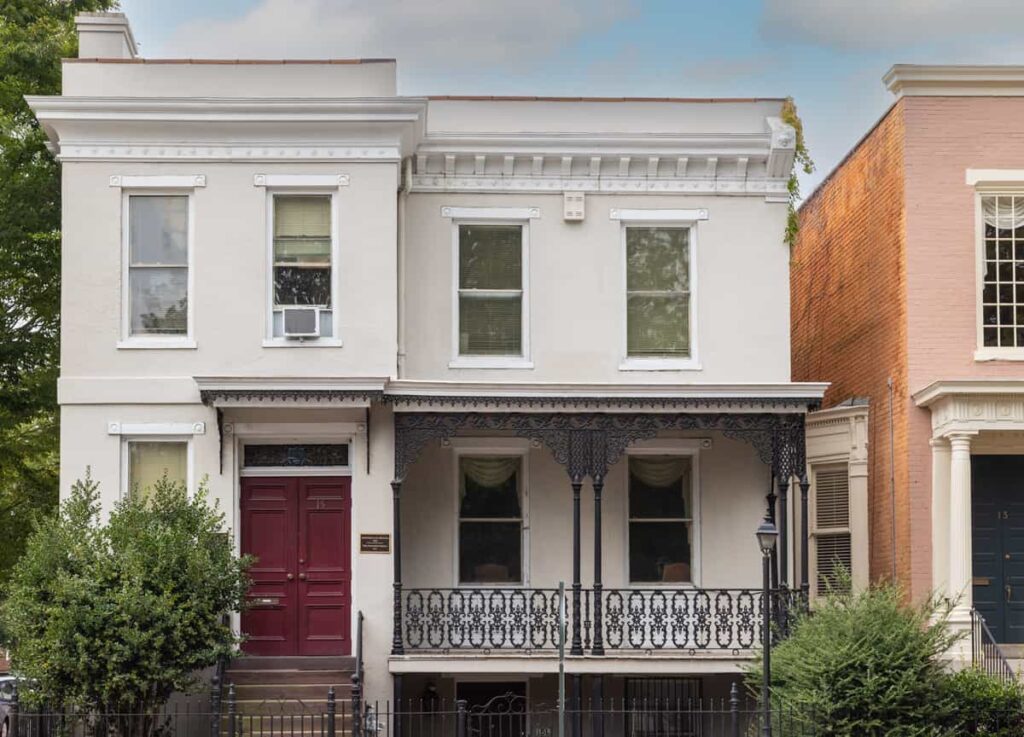Blazing A New Trail: Understanding Virginia Marijuana Laws in 2024
If you are curious about the recent changes to Virginia marijuana laws, you are not alone. The changes to Virginia marijuana laws are not as clear-cut or obvious as you might think, given how they’re being reported in the news.
This guide will give you a quick rundown of Virginia marijuana laws in 2024 pertaining to the possession, selling, and manufacture (growing) of marijuana. It will also review how some of the changes to police stops and searches affect these marijuana laws.
What Are the New Rules on Possession of Marijuana in Virginia?
Under 2024 Virginia marijuana laws, marijuana is not totally legal — not yet. The rules for possession of marijuana in Virginia depend on the amount of the marijuana as well as the age of the person possessing it.
What Are the Consequences for Marijuana Possession for Adults (21+ years old)?
For adults aged 21 years old or older, criminal penalties for small amounts of marijuana have been eliminated. The old statute under which the police used to charge people, Section 18.2-250.1 of the Code of Virginia, has been repealed. In its place, a new statute regarding Virginia marijuana laws was created that can be found in a completely different area of the Code of Virginia.
Marijuana possession by adults is now governed by the same area of the Code that regulates such things as alcohol possession and sales: Title 4.1 of the Code of Virginia.
Currently, an adult 21 years old or older may possess up to an ounce of marijuana without consequence, even in most public places. More than an ounce may result in a citation resulting in a $25 civil penalty. The citation is not considered a criminal offense.
The consequences become more serious as the quantity of marijuana increases. For amounts between four ounces and a pound, the penalty is a class 3 misdemeanor. This means a potential fine of up to $500, but no potential jail time.
For amounts in excess of one pound of marijuana, the penalty skyrockets. Those quantities result in a felony criminal charge punishable by between one and ten years in prison, and a fine of up to $250,000.
What Are the Consequences for Those Under 21?
Anyone under the age of 21, whether a juvenile or 18 years or older, cannot lawfully possess marijuana in any quantity under Virginia marijuana laws. The penalty for each is essentially the same: a $25 civil penalty for quantities of one ounce or less of marijuana.
A key difference is that, in addition to the civil penalty, those charged as juveniles or adults under the age of 21 also “shall be ordered to enter a substance abuse treatment or education program or both, if available, that in the opinion of the court best suits the needs of the accused.” Similar to how Virginia treats alcohol possession by those under 21, the consequences for marijuana possession by those under 21 are more involved.
Regardless of age, if the quantity of marijuana reaches 4 ounces or higher, the consequences are the same as those described above for adults aged 21 years or older.
What Else Might I Be Charged With for Possessing Marijuana in Virginia?
Please keep in mind that pre-existing laws governing the sale, manufacture, and distribution of marijuana remain essentially unchanged. The sale, distribution, or possession of marijuana with the intent to sell or distribute it can result in a separate charge.
- For quantities of marijuana no greater than one ounce, the penalty for distribution (or possession with the intent to distribute) in Virginia is a class 1 misdemeanor.
- For quantities of marijuana greater than one ounce but no more than five pounds, the penalty for distribution (or possession with the intent to distribute) in Virginia is a class 5 felony.
- For quantities of marijuana greater than five pounds, the penalty for distribution (or possession with the intent to distribute) in Virginia is a felony punishable between five and thirty years in prison!
Will you be charged with this? That depends on the circumstances of your particular case, such as cash currency, ledgers, digital messages indicating distribution, etc. Under the new rules, the government has to fight a presumption that amounts of marijuana one ounce or less are intended for personal use.
Can I Grow My Own Marijuana Plants in Virginia?
Yes, and no. There are rules in place limiting the number of marijuana plants that you may lawfully grow in Virginia.
Growth of up to four plants for personal use, in a single household, is legal in Virginia. The plants need to be kept in a place not visible to the public from outside, and efforts must be made to prevent unauthorized access by people under age 21.
The plants also need to be tagged with information that includes “the person’s name, driver’s license or identification number, and a notation that the marijuana plant is being grown for personal use as authorized under this section.”
Violations of the rules governing marijuana plants will depend on the number of plants involved in the case. For ordinary cases, the penalty is civil with a civil penalty of up to $25. Most cases will likely fall under this penalty.
For 50 to 100 marijuana plants in Virginia, the penalty is a class 6 felony offense. This is punishable by up to 5 years in prison.
For more than 100 marijuana plants in Virginia, the penalty is a felony offense punishable by between 1 and 10 years in prison and a fine of up to $250,000.
The enhanced penalties for 50 or more marijuana plants reflects the Virginia General Assembly’s concern about distribution of marijuana and possession of marijuana that extends beyond personal use.
Will My Car Be Searched If the Police Smell Marijuana?
No! One of the biggest changes to the law in recent years has been the elimination of what was referred to as the “plain smell” doctrine, under which an officer could search a vehicle for narcotics simply based on the odor of marijuana.
As you might imagine, this old rule gave law enforcement a lot of latitude on when they could or could not search a vehicle.
Now, with limited exceptions, the odor of marijuana cannot be used as the basis for a warrantless search. Of course, if law enforcement is in possession of a search warrant, they may engage in a search. But the days of roadside stops leading to a search of your vehicle because the officer said he or she smelled marijuana are essentially over.
This does not eliminate the odor of marijuana as a clue that can generate probable cause for a search. It just cannot be the only clue. If an officer smells marijuana, and also develops other evidence in the course of a traffic stop, a lawful search of your vehicle might still happen.
Other evidence that could be used along with the odor of marijuana could include: drugs in plain view, visible signs of impairment, admissions about distribution or possession of narcotics, unusual amounts of cash currency, etc. Search and seizure rules are a very fact-specific and highly-litigated area of law, and so the preceding list is not exhaustive.
Although every case is different and cases are generally extremely fact-specific, the legality of searches based solely on the odor of marijuana is thankfully quite clear — the police are not allowed to do it.
What Can I Do If I’ve Been Charged With a Marijuana Crime in Virginia?
Do not panic if you have been charged with a marijuana offense in Virginia. There are options. If you are charged criminally, there are benefits to hiring an attorney with marijuana case trial experience. David G. Parker has years of trial experience in marijuana and other drug charges in Virginia. If you are interested, contact David G. Parker Law today for a free consultation about your case.
It is important to understand Virginia marijuana laws in 2024: if you are facing a marijuana charge, an attorney can help you negotiate your case with the government, review the case for any constitutional violations or problems with the government’s evidence, and (if it gets that far) guide you through the trial process. Contact us today!







